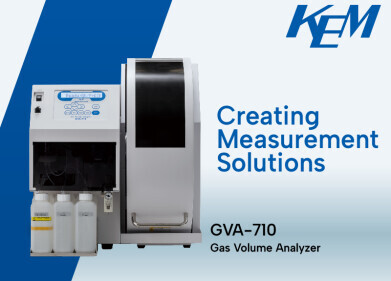Laboratory Products
How to Evaluate Your Research Projects
Sep 19 2022
Evaluating research projects is a key responsibility for laboratory managers. Most postdocs and principal investigators (PIs) will have an idea of what their “dream” research project looks like. Evaluation is a critical step in turning this dream into a reality. It helps build a strong foundation for research projects and give them the best possible chance of success.
Read on to find out more about how to evaluate your research projects and why it’s so important.
A strategic start-up list
The first step to evaluating a research project is to draft a start-up list. The list will include everything you need to get your project up and running. While most projects are restricted by budget, it’s important to advocate for specialty items that are essential to the research.
Whether an item is “essential” can be determined by calculating if usage justifies the initial cost of investment, plus ongoing maintenance and licensing costs. For example, a Multi-Function Cyclic Ion Mobility - Mass Spectrometry System is an essential investment for laboratories studying biological molecules. If the budget doesn’t stretch, it may be possible to co-purchase the item with another department. Of course, the item will be a shared resource which limits access.
Securing grants and funding
Applying for grants is another important responsibility taken on by postdocs and principal investigators (PIs). Start-up packages offered by research institutions only stretch so far, making grants an important source of funding for research projects.
“Funding is a crucial complement to research. Science costs money, and you’ll probably need grant revenue to bankroll your work beyond the start-up phase,” write authors Michael Boyce and Renato J. Aguilera in an article published in the journal BMC Proceedings.
They advise taking “a strategic and multi-pronged approach” to maximise the chance of success. Storytelling is important as it helps engage decision makers and set applications apart from the crowd.
It’s also imperative to align your research project grant application with the unique goals and values of the organisation offering funding. The review panel will be harsh when evaluating if your research project aligns with their objectives. A good strategy is to evaluate your application through the lens of a decision maker. Try to understand what they’re looking for and do everything you can to fit your grant application into the box. Boyce and Aguilera say the underlying goal should be to “crystalise your ideas and align your research questions and plans with your scientific goals.”
The importance of evaluation
As discussed, carefully evaluating research projects in the earliest stages is important. A strategic approach to evaluation helps labs invest in the right equipment, secure funding and achieve their research goals. The process can be stressful, which is why it’s important to approach it as a learning experience. In a different article published in BMC Proceedings, authors Bob Goldstein and Prachee Avasthi write:
“As a newly hired PI, you can make mistakes, and you can be sure that you will. We all do. It is common for early-stage principal investigators (PIs) to regret some of the decisions they make regarding hires or equipment purchases. Many early-stage PIs repeatedly and subtly change their approaches on exactly how to interact productively with their lab members. There are many paths to success. Some trial and error to finding your own path is inevitable. Rather than expecting perfection, it can be healthy to view some trial and error as valuable in your learning process.”
Want to know more about how to get a research lab up and running. From purchasing supplies to paying staff salaries, we cover everything you need to know in ‘How to Start a Research Lab - All Bases Covered’.
Digital Edition
Lab Asia 31.2 April 2024
April 2024
In This Edition Chromatography Articles - Approaches to troubleshooting an SPE method for the analysis of oligonucleotides (pt i) - High-precision liquid flow processes demand full fluidic c...
View all digital editions
Events
Apr 22 2024 Marrakech, Morroco
Making Pharmaceuticals Exhibition & Conference
Apr 23 2024 Coventry, UK
Apr 23 2024 Kintex, South Korea
Apr 23 2024 Seoul, South Korea
Apr 24 2024 Jakarta, Indonesia


.jpg)

.jpg)













